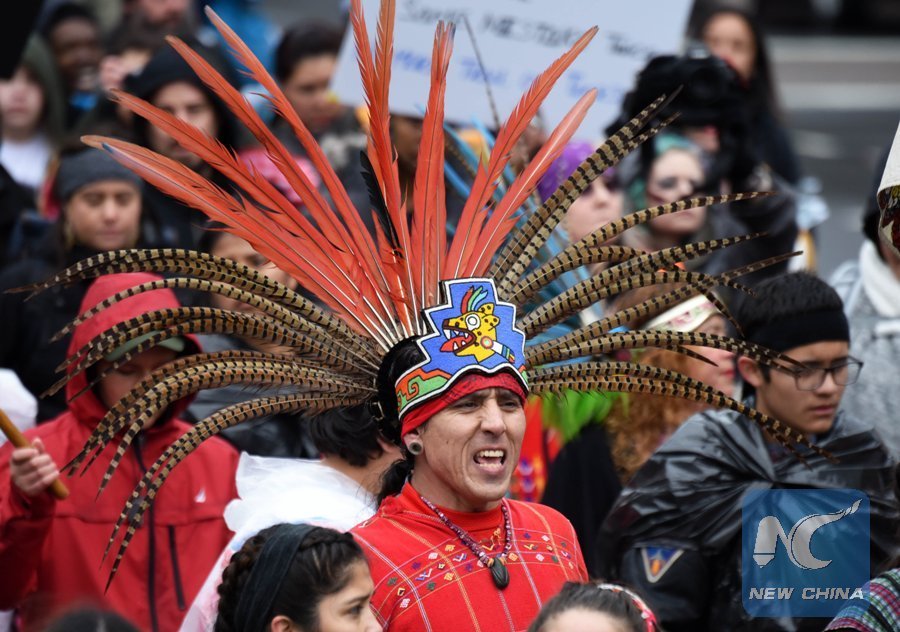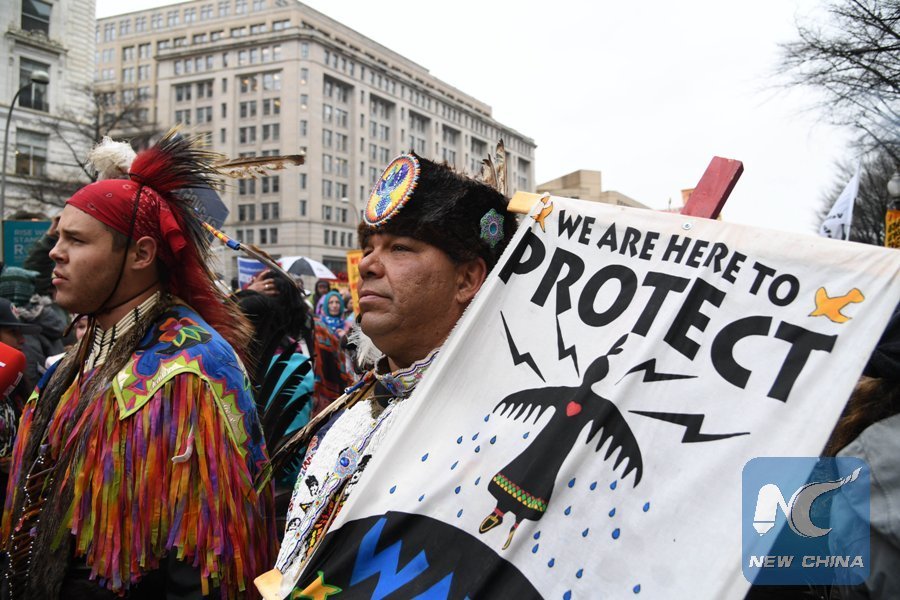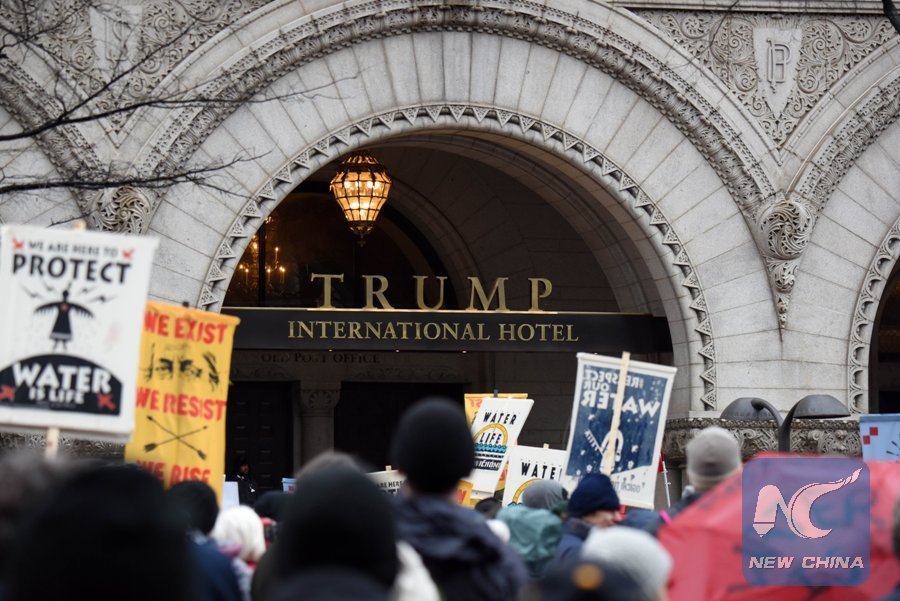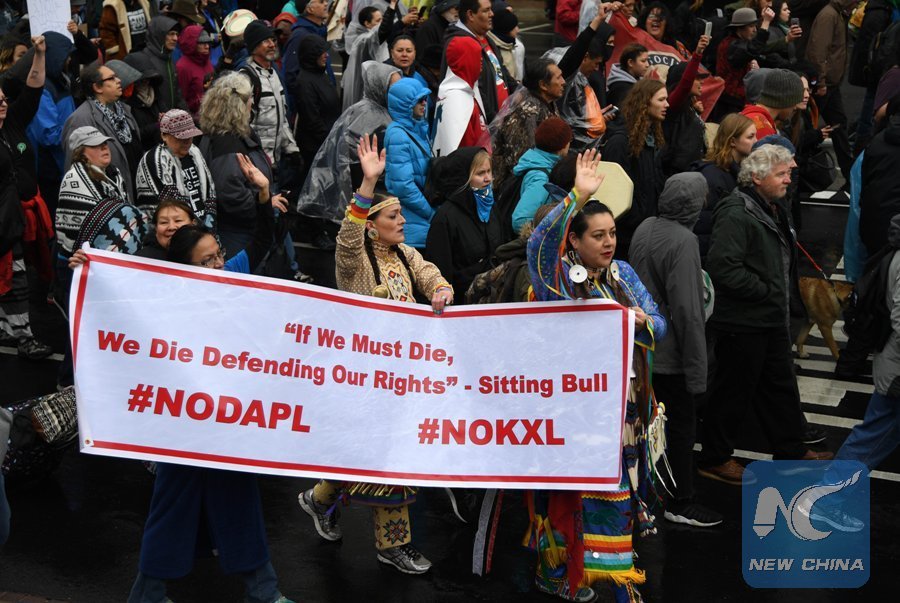
Indigenous people from numerous tribes attend a protest in Washington D.C., the United States, on March 10, 2017. (Xinhua/Yin Bogu)
WASHINGTON, March 10 (Xinhua) -- Thousands of protesters, many of whom are Native Americans, took to the streets in Washington D.C. on Friday to oppose a pipeline project which they say may harm the environment.
"Water is sacred," protesters of the Native Nations Rise march chanted as they proceeded down the Pennsylvania ave in a light drizzle, demanding the U.S. government retract a decision to lay the 1,172 mile long Dakota Access Pipeline which cuts across the Standing Rock Sioux Tribe's reservation.

Indigenous people from numerous tribes attend a protest in Washington D.C., the United States, on March 10, 2017.(Xinhua/Yin Bogu)
The longstanding debate over the project has rallied environmental conservationists and other Native American tribes to join the demonstration, and pressured former President Barack Obama to temporarily stall the project, before U.S. President Donald Trump ordered the construction to resume in the first days of his tenure.
"We came here to protect mother Earth," Ronald Day of the Swinomish Tribe said, "We are also concerned about the conservation of the Salish Sea area," Day said, referring to a network of coastal waterways adjacent to the Swinomish historical lands north of Seattle, Washington.

Indigenous people from numerous tribes attend a protest in Washington D.C., the United States, on March 10, 2017.(Xinhua/Yin Bogu)
Ricky Boyd, who is from the Mille Lacs Band of Ojibwe tribe in Minnesota, said "lots of nations came out today to honor their land and their beliefs, because not just the Dakota Pipeline but projects of all over are threatening the environment."

Indigenous people from numerous tribes attend a protest in Washington D.C., the United States, on March 10, 2017.(Xinhua/Yin Bogu)
The Dakota Access Pipeline is an underground oil project that begins in Northwest North Dakota and runs Southeast to Patoka, Illinois. The project is 87 percent complete but a portion in the Standing Rock Indian Reservation, which was blocked by local Native Americans citing environmental concerns.

